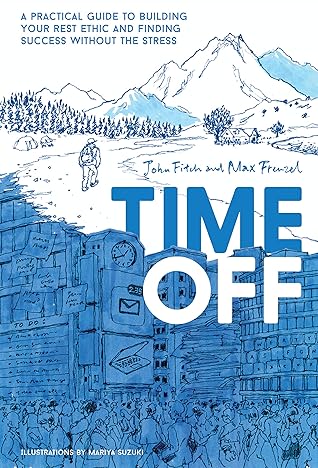More on this book
Community
Kindle Notes & Highlights
by
John Fitch
Read between
November 12, 2021 - January 22, 2022
“distractions from irrelevant information and interruptions by our attempts to simultaneously pursue multiple goals.”
Surprisingly, experiments have shown that ignoring irrelevant information is even more important for remembering than our focus on the thing itself.
Until the 21st century, we thought that only substances could cause real addiction. But over the last one or two decades, we have realized that behavioral addictions are just as real.
Studies have shown (and the experience of every casino owner or gambling addict has confirmed) that rewards delivered at random release much more dopamine than if the pattern was predictable.
A major force that encourages addiction is our drive for social approval.
“The ultimate freedom is a free mind, and we need technology that’s on our team to help us live, feel, think and act freely.”
going: “The attention economy means that no matter what a technology company aims to create … they win by getting people to spend time. What starts as an honest competition to make useful things that people spend time on, devolves into a race to the bottom of the brain stem to maximize the time we spend.”
we are information-seeking creatures.
When we switch between two tasks, we suffer both a time-delay as well as reduced performance on either task.
tasks. And our threshold for boredom has dramatically gone down.
“seem to have lost the ability to simply do nothing and endure boredom. This leaves little time for reflection, deep thinking, or even just simply sitting back and letting our random thoughts drive us places we might not have gone while immersed in direct thinking.”
Only deliberate, focused practice leads to the reinforcement of neural pathways, while distracted attention causes too many circuits firing simultaneously for any one of them to strengthen.
Constant attention switching has a lasting negative impact on the brain. True deep work and deep thought become impossible.
We can change our brain to boost cognitive control, as well as change our behavior and environment to make distractions less likely.
So it is never too late to start improving our brain and boost cognitive control.
Mounting evidence is showing that a regular mindfulness practice – such as meditation or reflection – can directly improve our cognitive control.
Finally, one of the most well-studied enhancers of cognitive control – as well as overall mental and physical well-being – is exercise.
Noble leisure is arguably one of the best tools for staying mentally sharp.
“One day a week, we turn off the technology in our lives. It has been profoundly life-changing for us. It resets my soul each week. You end up doing all of the things you don’t make the time to do when you have delicious screens in front of you.”
Do a micro Tech Shabbat
Newport writes, “their compulsive phone use papers over a void created by a lack of a well-developed leisure life.”
Erich Fromm remarked, “Boredom is anxiety about absence of meaning in a person’s activities or circumstances.”
The Future of Work
In the future of work, time off will not be a “nice to have” or an attractive benefit that a generous employer provides to attract and keep talent. Our uniquely human capabilities, skills, and talents will be our key competitive advantages – and they are all enabled through the right use of time off. That makes time off as essential to our work as light and a Wi-Fi connection.
We need you, dear reader, to be the creative, impactful, empathetic, well-rested, and happy person to lead us into the future of work.
Let’s reclaim our time off and elevate leisure once again to one of the most noble and valuable things we can do with our lives.


